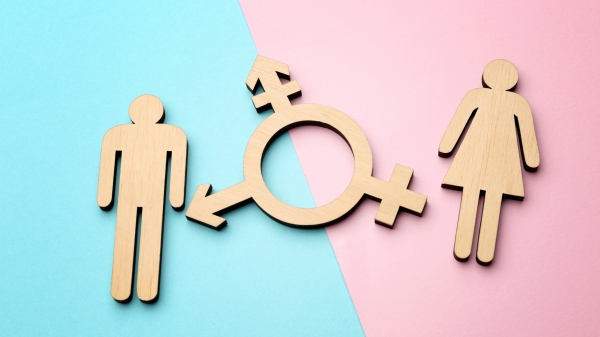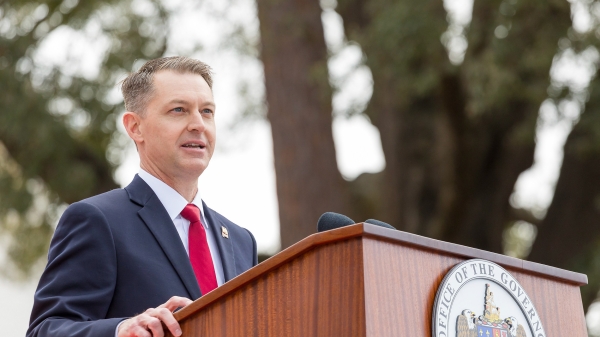Phineas Fleming-Smith, a transgender young man living in Alabama, on Tuesday asked state lawmakers behind a bill that would make it a felony crime to prescribe puberty-blocking medications for minors, among other treatments, to “dig deep and attempt to do some soul searching.”
“Why are you doing this? Why are you choosing to use your position of authority to cause harm against kids, so many of which are struggling as is?” Phineas said during a press briefing hosted by the Human Rights Campaign.
Alabama’s House Bill 1 could soon come up for a vote in the full House, and would require school counselors to report instances of “gender dysphoria” and ban gender-affirmation surgeries on children, which physicians say aren’t being done in Alabama.
Sen. Shay Shelnut, R-Trussville, sponsored the Senate version of the bill. Rep. Wes Allen, R-Troy, sponsored the House version.
Phineas said that that transgender youth who do not receive support and acceptance are more likely than their cisgender peers to face harassment, physical and sexual violence, homelessness and access to care.
“I ask you to take a look at our family and me. How am I hurting you or anyone else by wanting medical hormonal treatment? I do not want to be a pawn in a political agenda, in which I was never consulted about,” Phineas said.
Dr. Morissa Ladinsky, a pediatrics physician and co-leader of the gender health team at UAB, said the current evidence-based standardized care provided to transgender youth, which is endorsed by the American Academy of Pediatricians, has been in place for decades.
“People don’t choose their gender, and for some gender-diverse kids, the specialized health care we provide on a gender-affirming model can absolutely avert life-threatening dysphoria,” Ladinsky said. “The bill’s horrific wording uses mistruths to elicit fear and further victimize an already marginalized population.”
Ladinsky said gender-affirming genital surgery is never performed on minors in Alabama, and puberty blockers are “100 percent reversible and have been used for over 30 years by our profession.”
Dr. Tobias Martinez Jr., an emergency room child psychiatrist at Children’s of Alabama, explained that transgender youth statewide are already in crisis, and if passed, the bill would only place the children in greater harm.
“I see multiple patients daily that are suffering with depression and suicide ideation and suicide attempt and anxiety, and my fear is that if we deny them this evidence-based treatment, we’re only going to see massive more patients come to the emergency room,” Martinez said.
Martinez said he treats transgender youth from all over the state, who suffer from denied treatment and care, who are bullied and ridiculed.
“It just breaks my heart to hear some of the horror stories,” Martinez said, noting that when LGBTQ youth attempt suicide they do so in very serious ways, with deep cuts and “very serious ingestions.”
Cathryn Oakley, HRC state legislative director and senior counsel, said Alabama’s bill is one of the most extreme versions of these types of bills they’ve seen across the country.
“With its incredible penalties, and penalties that reach parents as well as doctors and school administrators,” Oakley said. She also believes the bill would likely lead to litigation.
“If you have a very, very small group of people who are going to be experiencing a very significant harm, and there’s no justification whatsoever for weighing in, you probably have an equal protection violation,” Oakley said. “And that is I think very much what’s happening here.”



















































